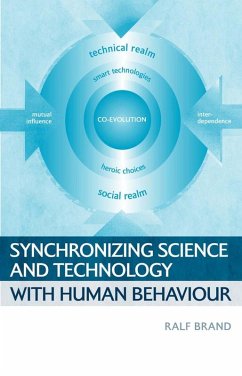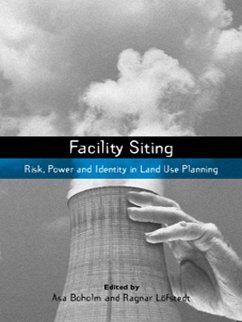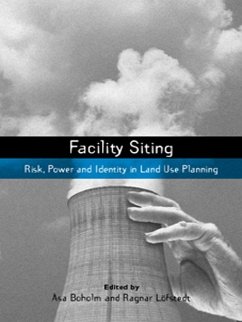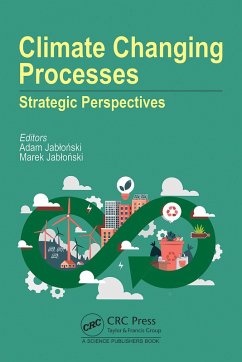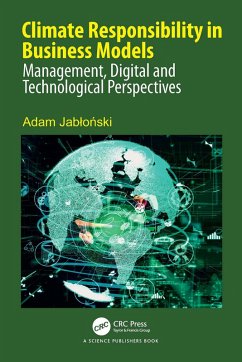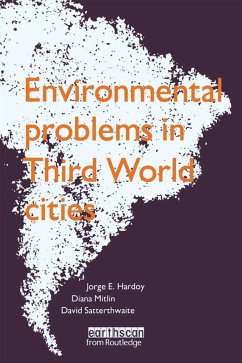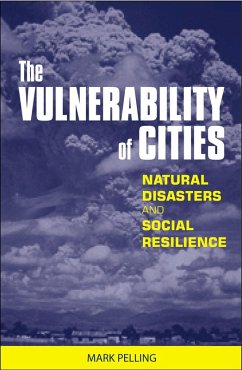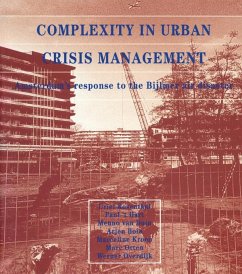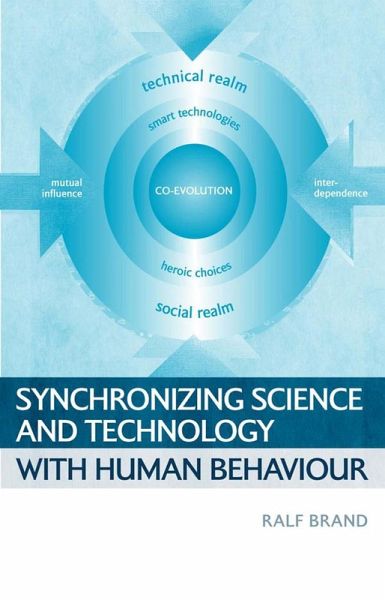
Synchronizing Science and Technology with Human Behaviour (eBook, PDF)
Versandkostenfrei!
Sofort per Download lieferbar
56,95 €
inkl. MwSt.

PAYBACK Punkte
28 °P sammeln!
¿A rare achievement, one of the first books to link technological and behavioural change to the sustainability agendä Charles Landry, author of The Creative City¿Any course interested in sustainable development in practice would benefit from the case studies here¿ Dr Adrian Smith, SPRU Science and Technology Policy Research Unit, University of Sussex, UKTwo disjointed voices can be identified in the prevailing sustainability discourse: one technology-focused, the other favouring behavioural solutions. This new, practical text bridges the gap in a 'co-evolutionary' framework, enabling more ...
¿A rare achievement, one of the first books to link technological and behavioural change to the sustainability agendä
Charles Landry, author of The Creative City
¿Any course interested in sustainable development in practice would benefit from the case studies here¿
Dr Adrian Smith, SPRU Science and Technology Policy Research Unit, University of Sussex, UK
Two disjointed voices can be identified in the prevailing sustainability discourse: one technology-focused, the other favouring behavioural solutions. This new, practical text bridges the gap in a 'co-evolutionary' framework, enabling more sustainable policies and projects to be developed.
Arguing that technical and social realms are much more connected than most people concerned with sustainability tend to admit, the author has developed an innovative and integrated strategy that encourages planners, architects and politicians to work with end-users in 'co-designing' technologies and infrastructures that make socially desired behaviours more attractive. Having explained the nature of the problem, the author outlines key concepts and shared characteristics of co-evolutionary projects and anticipates possible criticisms. Through detailed analysis and diverse case studies, the reader is presented with a clear picture of a more holistic approach to planning sustainable cities and regions, which will be invaluable for students and professionals alike.
This will be an invaluable textbook and planning tool suitable for students of science and technology studies (STS), regional policy and planning, and practitioners including city and regional planners, policy makers and consultants.
Charles Landry, author of The Creative City
¿Any course interested in sustainable development in practice would benefit from the case studies here¿
Dr Adrian Smith, SPRU Science and Technology Policy Research Unit, University of Sussex, UK
Two disjointed voices can be identified in the prevailing sustainability discourse: one technology-focused, the other favouring behavioural solutions. This new, practical text bridges the gap in a 'co-evolutionary' framework, enabling more sustainable policies and projects to be developed.
Arguing that technical and social realms are much more connected than most people concerned with sustainability tend to admit, the author has developed an innovative and integrated strategy that encourages planners, architects and politicians to work with end-users in 'co-designing' technologies and infrastructures that make socially desired behaviours more attractive. Having explained the nature of the problem, the author outlines key concepts and shared characteristics of co-evolutionary projects and anticipates possible criticisms. Through detailed analysis and diverse case studies, the reader is presented with a clear picture of a more holistic approach to planning sustainable cities and regions, which will be invaluable for students and professionals alike.
This will be an invaluable textbook and planning tool suitable for students of science and technology studies (STS), regional policy and planning, and practitioners including city and regional planners, policy makers and consultants.
Dieser Download kann aus rechtlichen Gründen nur mit Rechnungsadresse in A, B, BG, CY, CZ, D, DK, EW, E, FIN, F, GR, HR, H, IRL, I, LT, L, LR, M, NL, PL, P, R, S, SLO, SK ausgeliefert werden.




